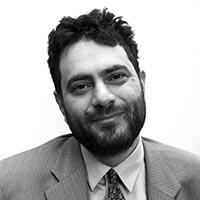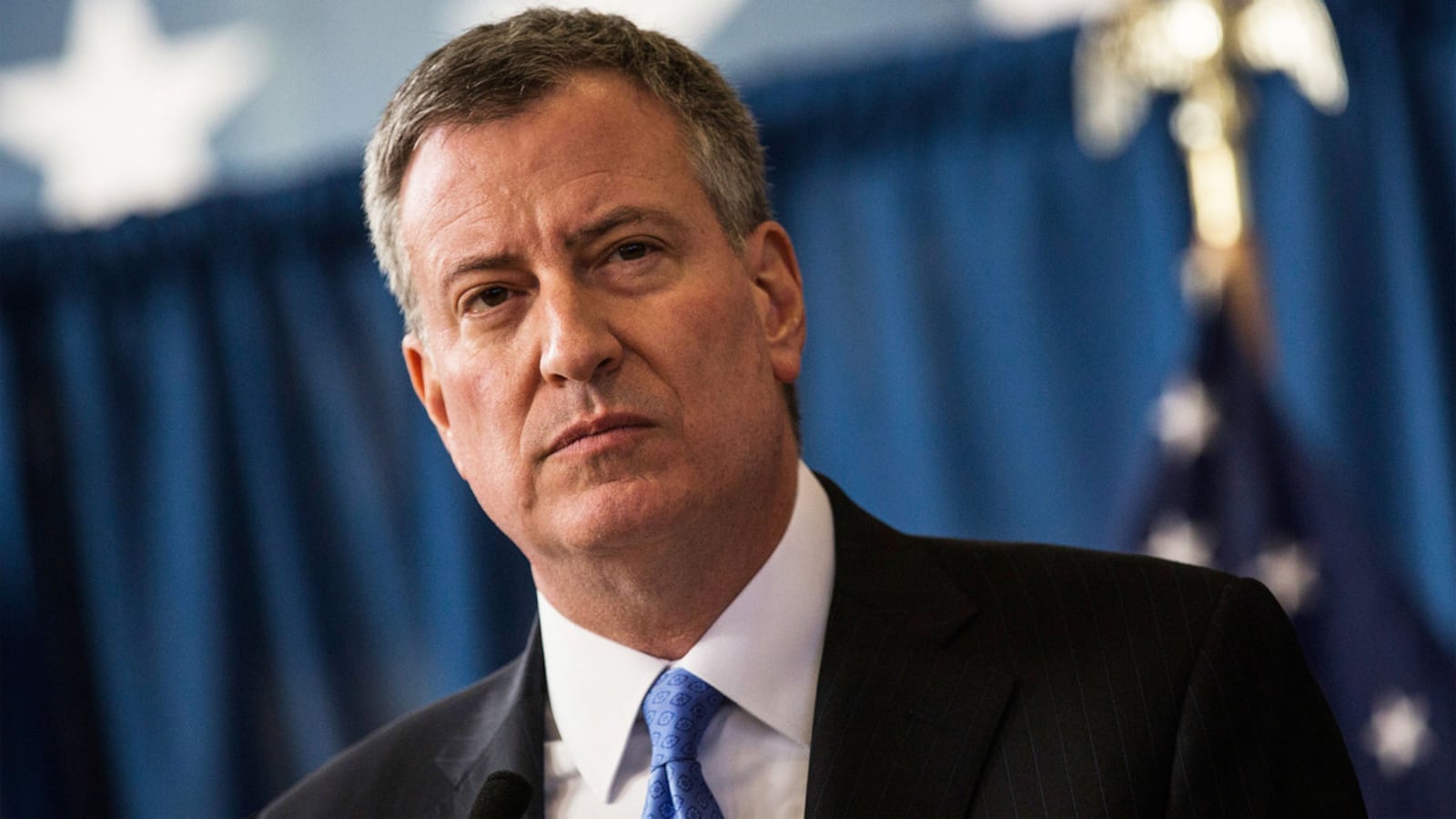It’s never a good sign when “Jews” become a trending topic, or when Bill de Blasio does something that commands national attention. When one leads to the other, it’s a bad sign indeed.
That’s what happened hours after Donald Trump sent military planes flying low over the city’s skyline on Tuesday as a tribute to first responders and dozens of New Yorkers were seen predictably clustering in parks and on piers to watch that display.
That evening, about 2,500 Hasidic Jews thronged the streets of Williamsburg, in Brooklyn, to mourn the death of 73-year-old Rabbi Chaim Mertz, who succumbed to the coronavirus. The funeral had been coordinated with the NYPD, which barricaded streets for what was supposed to have been a socially distant funeral but one where, predictably, mostly masked mourners packed the streets with little space between them. (Met Council CEO and former City Councilman David Greenfield has a useful summary of what happened here, as “a case study: ‘whatever can go wrong, will go wrong’ - pandemic version.”)
De Blasio has a long and warm history with many ultra-Orthodox leaders, going back to his days on the New York City Council, and had taken pains to avoid singling out religious Jews amidst reports that some were still holding public weddings and funerals and even continuing to operate secret schools in defiance of government shutdown orders. But on Tuesday night, the mayor decided to head to the scene in Williamsburg himself to break up the gathering, as his staff tweeted about it in an apparent attempt to show him as a Man of Action, like his frenemy Andrew Cuomo.
After the funeral was dispersed, and a dozen summons issued by the NYPD, de Blasio put out a series of tweets including one directly aimed at “the Jewish community”:
That’s the sort of stale turn of phrase he often uses, but—sort of like the time he quoted Che Guevara in Miami—this one landed with a thud, with the mayor widely accused of scapegoating and singling out Jews in a city with 1.1 million of them, the most of any city in the world and where many of them are far removed from the Orthodox tradition. While de Blasio is much more philo-Semite than anti-Semite, putting the onus on “the Jewish community” writ large seemed downright Trumpian.
“Hey @NYCMayor, there are 1mil+ Jewish people in #NYC. The few who don’t social distance should be called out — but generalizing against the whole population is outrageous especially when so many are scapegoating Jews. This erodes the very unity our city needs now more than ever,” tweeted Anti-Defamation League CEO Jonathan Greenblatt.
“NYC has been a refuge for Jews fleeing persecution and death for decades and more,” wrote Lis Smith, the Democratic operative who worked for de Blasio years before her turn as Pete Buttigieg’s presidential campaign manager.
“How on earth does the mayor of NYC single them out for persecution in the middle of a pandemic?
Words do not exist to describe the criminal incompetence at City Hall.”
The trouble, fundamentally, is that de Blasio doesn’t know when to stop talking, and in his thirst to be seen as a strong and effective leader he keeps putting his foot in his mouth at a moment when clear and consistent leadership and messaging is in high demand.
De Blasio said not a word about the funeral or his tweet for over an hour at his briefing Wednesday morning, as he used the TV time he’s been given because New Yorkers urgently want to know about the city’s response to the virus to promote his wife, Chirlane McCray, who’s aiming to run for Brooklyn borough president next year when the mayor is term-limited out of office with no next move of his own after his belly-flop of a presidential run.
When it was finally time to meet the press, though, it was effectively the only question of the day and de Blasio came as close as he ever does to offering an apology. I have to quote him at length here, and this is only part of the several hundred words he needed to say more properly—albeit while continuing to use the phrase “the Jewish community” to refer to some of the ultra-Orthodox—what he had expressed so stupidly in that tweet:
My message was to all communities and that was written in black and white, but it was also to be clear that what I saw I had not seen anywhere else and I was trying to be honest about the fact that there's a problem that people have to come to grips with and deal with or else people in the community will die, and that's not something to get somehow shunted aside.
I understand the power of words, obviously. But I'm not going to let that power, that concern about words, overcome the value of human life. We're here to protect human beings and people were put in danger last night. Members of the Jewish community were putting each other in danger. They were putting our police officers in danger.
Now, if I see it in any other community, I'll call that out equally. So again, if in my passion and in my emotion, I said something that in any way was hurtful, I'm sorry about that. That was not my intention, but I also want to be clear, I have no regrets about calling out this danger and saying we're going to deal with it very, very aggressively.
Just after de Blasio spoke, Jacob Mertz, a nephew of the deceased rabbi and the secretary of his synagogue, posted a letter drily noting that their plans for a public but socially distanced funeral “didn’t pan out,” and that “We understand Mayor Bill de Blasio’s frustration and his speaking out against the gathering.”
He went on: “It also hurts that this led to singling out the Jewish community, and for that we apologize to all Jewish people. We know that the mayor’s reaction came from his concern for the health and safety of our community and the entire city, and wasn’t ill intentioned. We share that concern. Health and life take precedence to anything else, and we shall follow those rules.”
I’m sure that’s where de Blasio’s reaction came from, but hearing the mayor who likes to talk about how “words matter” first generalize about a large group of New Yorkers based on a handful of bad actors and then toss up a word salad to avoid apologizing for doing that speaks volumes about the limits of the man we’re hoping can lead us through this dark hour.






